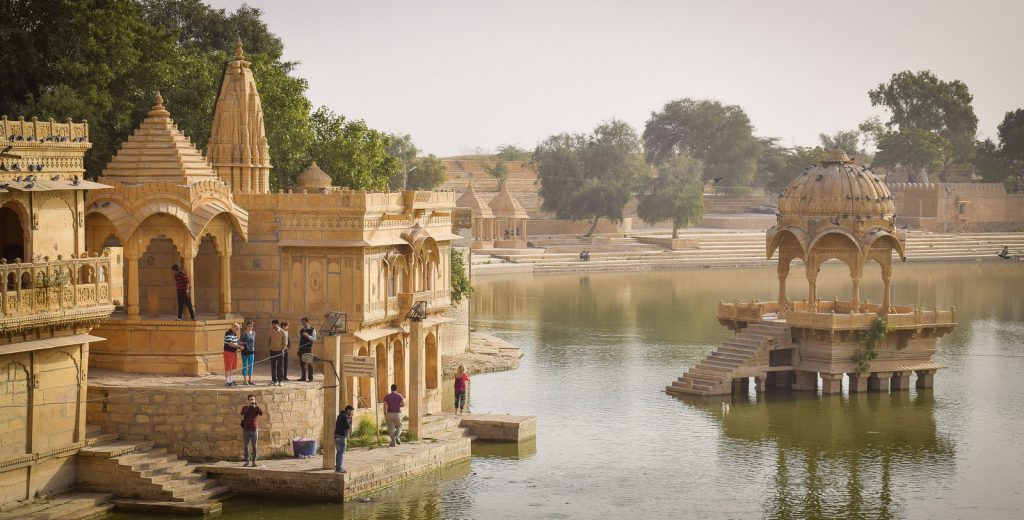WHY ARCHITECTURE IS IMPORTANT TO CULTURE AND SOCIETY
The footprints of humans from age-old years, decades, or centuries offer us evidence of human existence and development across time. These footprints encompass a wide range of items that prove human presence on the globe. Architecture is one of the most important pieces of evidence of human life in many places of the world. At its most basic level, architecture exists to build the physical world in which people inhabit; but, is architecture just concerned with the built environment?
Architecture is certainly more than that. It is a part of our culture. It’s a reflection of how we perceive ourselves and the world around us. Even though architecture is concerned about the physical world, it also serves as a reflection of not just culture and society, but also of human lifestyles and other conceptual notions about life. It is capable of recognizing the growth and collapse of many communities and cultures, highlighting the changes in human life throughout recorded existence.
Culture and Society
It’s been well-known to us that where culture denotes a group’s ethos, society denotes the individuals who share those behaviours and actions. There would be no society or culture if either one of them did not exist.
Humanity has left indelible footprints throughout history via the mediums of language, art, knowledge, and architecture. These footprints are not only retrospective; they are basic to our period and define our culture at any given moment, supporting our very sense of being human. Thereby, being essential as humanity is in a relatively close struggle for survival. We are human, but we want to be everlasting, and culture is the key to our triumph in this war. Culture enables us to establish our being to humanity to the point where we are not just ‘present,’ but are, in actuality, ‘eternal’.

Indian dancer during a festival_©Nandu Menon on Unsplash

Egyptian carvings_©Jeremy Bezanger on Unsplash
Reflection and Transmission
Architecture as a matter of human existence speaks of the culture in each society intertwining closely with constructional, ancient, administrative, economic, and communal features of society. It’s hard to deny that architecture influences society’s nature and culture. Ancient Egyptian architecture varies from Greek architecture, which varies from Indian architecture. Thus throughout history, architecture has remained one of the most essential and vital reflections of culture.
As humans, we live with the wisdom that our forefathers have passed down to us. We’ve gained it through experiences, education, and knowledge. Although we may use language to communicate and deep understanding to interchange knowledge, but only by looking at the history of language, the form, and roots of information can we interpret and grasp their role as cultural aspects. And architecture is one of the most significant mediums for transmitting memories, learnings, ideas, thoughts, beliefs, and ways of life, all of which contribute to the shaping of our current world.

Athens, Greece_©Arthur Yeti on Unsplash

Conclusion
Each society’s culture determines its identity, and architecture as a social phenomenon arose from the culture and its impacts. Thinking about the future, technology is expected to continue having a great influence on the future of architecture and its effects on society, but we must continue to understand human relationships to the built environment.
The architect, the base of architecture, are the society’s organiser, master, topographer, sociography specialist, and dictator of the coming generations’ way of life. Thus architects may be thought of as the ultimate arbiter of our future history as the necessities of the time are observed and considered by architects. An architect’s job tends to revolve around creating a comfortable atmosphere for people and will continue to do so in the years ahead.
Based on these diverse experiences, one can confidently state that an architect’s lines must be assessed from a variety of perspectives, not only the distinctive ones. Every line an architect draws will have a beneficial or negative impact on the space’s occupant, and consequently on society as a whole. Because architecture had, has, and will always affect and reflect our culture and society.
Source: https://www.re-thinkingthefuture.com/materials-construction/a6095-why-architecture-is-important-to-culture-and-society/
